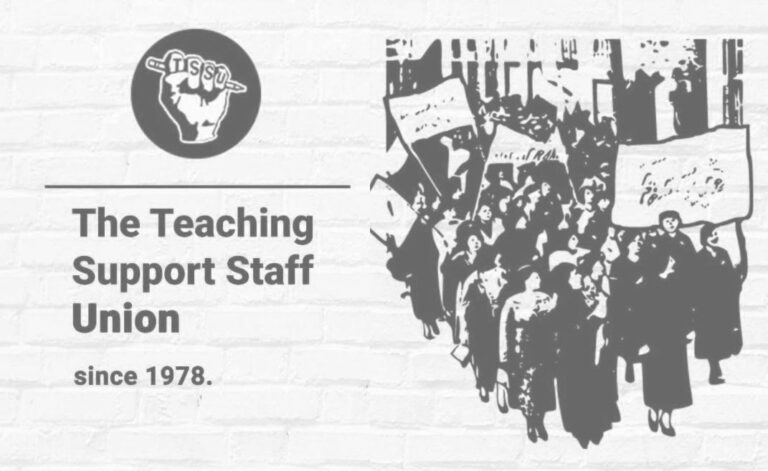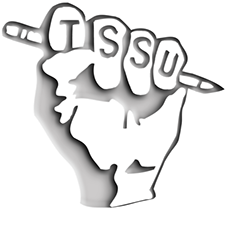Bargaining Update - Dispatches from the Front


In addition to our proposed language changes, all of which are without additional cost and many of which are mutually beneficial to our members and the employer alike, the TSSU has put together a careful package of monetary proposals for this round of bargaining. Some are embedded in the language and structure of articles determining the basis for compensation, and others more traditionally proposed as benefits and wages. These proposals aim to improve the financial positions and employment conditions of our members while developing the material basis on which SFU can engage in outstanding research, deliver world-class teaching and reinvigorate our communities.
All of our proposals are framed within our mandate, grounded by a membership who lives financially close to the edge: our members have trouble meeting their rent; our members carefully calculate what kind of shape their teeth are in, given that they either have no dental plan, or limited benefits; many of our members do not know what they will do if their glasses break.
But we are the teachers – we account for the majority of the contact time with students. We are either learning to be teachers, or are experienced, but we are all teachers undervalued by SFU as an employer.
Our graduate-student members reported in the last GSS survey that they had a median income from all sources of $1500.00 per month ($18,000.00 per year). By comparison, a study done in 2000 by then Dean of Graduate Studies, Jon Driver, reported that Graduate Students had a median income level of $20,000 from all sources.
In his report, Driver identifies increased funding of graduate students as a priority for maintaining a healthy research environment.
From the receiving side: Graduate Student income, $1500 per month, is $6000 per semester; tuition and fees for one semester come to $2054; and rent for four months, reported in the GSS survey as averaging $750 per month, accounts for $3000. That leaves $936 per semester ($234 per month) for food, books, and vital incidentals.
This is hard enough to imagine for an individual, but the GSS survey also confirms that the average age of a PhD candidate has risen to 30, which suggests that we have more students likely to have dependents in the mix. The current situation is miserable for a family of four and this economic outlook signals that our members face significant barriers to accessing their right to education.
These income levels include the income generated by the 20% of all graduates who work off-campus to keep afloat. Departments pressure their graduates to shorten their completion times, so students are forced to take off-campus work in addition to their campus employment just to keep a roof over their heads.
Completion times relate directly to adequate financial support.
While the revenue picture of graduate students has deteriorated since 2000, the Canadian Price Index over the same period of time has risen over 18%, domestic tuition for graduate students by 108%, and International Graduate tuition by 128%. We live in one of the most expensive cities in Canada, but the wages of our members are some of the lowest for similar work in Canada. UBC’s ability to provide a higher hourly wage to its TA/TM population than SFU, even with the same paymaster, remains unhindered.
Our Sessionals and ELC/ITP Instructors’ wage increases within the duration of this last contract (2004 to today) totaled 10%, while the CPI in the same time frame rose 18.33%. We have fallen further and further behind, experiencing the financial impacts of inferior benefit plans, no pension rights, limited income security, and the increased pressures of overwork and stress caused by little professional development or vacation time—these members of the TSSU need relief.
The signature engaging model of teaching tutorials/labs that our members deliver has seen decreased commitment. In 1982/83, the TA budget totalled 4% of all SFU expenditures; by 2009-10 this number had fallen to approximately 3%. Had the commitment to both the model and the graduate population remained the same, over four million additional dollars a year would remain committed to the model and the teachers, and supporting graduate studies at SFU. These figures represent a historical shift during a period in which tuition went from 13.5% to almost 28% of revenue.
Our mandate addresses these real situations.
The employer has carefully repeated references to the framework within which it has to bargain, and believes the policy statement issued by the employers’ council binds it. Paul Straszak, President and CEO of the Public Sector Employers’ Council (PSEC), two years ago explained the “Net Zero” mandate, in addition to its “Net Zero” financial mandate, instructed employers not to make any material changes to management rights.
He went on to state: “A collective agreement is nothing but a series of limitations on management rights; ‘material’ means, however, that an employer would not be able to proceed with its plans if proposed changes were undertaken, and that an employer could not agree to anything that meant the employer would be restricted from reaching its objectives.”
We believe that ensuring SFU’s capacity to attract and retain the best of graduate student material, and its competitive edge in attracting undergraduates and language students to a vital and effective teaching environment, remains a critical part of the employer’s objectives. The Strategic Plans, Teaching and Learning Task Forces and the Envision process repeated and expand SFU’s emphasis on good teaching, and on attracting and valuing excellence. We crafted creative proposals around those objectives, and engaged in real bargaining to make this collective agreement better serve the objectives the academy espouses.
Our creativity, however, has been met with a monotonous repeated refusal to put a system in place that would allow TAs and TMs to access work across departments; “no” to ensuring graduate students can work and support themselves; “no” to valuing the experience and success of our sessional instructors; “no” to placing ELC and ITP instructors equitably and professionally to carry out their work; and “no” to weaving them fully into the fabric of our collective agreement, a small, free, but important gesture to their value and place at this University.
These solutions engage the reality of operating a successful and vibrant university in Canada, and the terms and conditions of employment energize many renowned Universities. Seniority rights for Sessionals, better access to TAships, and valuing teachers as professionals–all commonplace agreements in other places–exist here, too, in British Columbia.
The so called “2010 Net Zero Mandate” as published on the PSEC website have dropped all references to limitations on bargaining language; no visible reason within that “mandate” ever impeded employers’ ability to address significant language issues within any collective agreement.
The new 2012 Cooperative Gains Mandate framework also allows employers to address language changes.
We want Net Zero: that is, we would like to put our members on a reasonable and fundamental economic footing–in most cases back to where they were 12 years ago, back to zero.
Our members in ELC/ITP were once offered contracts with four weeks paid vacation (2000), but now receive (after filing a complaint with the Employment Standards Branch) the bare minimum provided by the Employment Standards Act. The wage scale that the employer produced during the last, truncated bargaining was a mystery, and, at best, froze the wages members had been receiving for the previous six years. As a consequence they have suffered significant losses over the life of the agreement in terms of their capacities to feed their families.
While our employer proudly proclaims itself one of the top 100 employers in the country on the basis of its pension plan, paid maternity leave, reasonable sick leave and other leave policies, and decent professional development support, a small group of dedicated, professional, teachers are denied that which it celebrates. This cannot continue.
We want to be brought to a position comparable to other employees at SFU and other Universities – that is our Net Zero.
However, we recognize that remedying the significant losses members of the TSSU have experienced must coincide with a clear mandate for the future. Entrenching inequality does not create equality, and addressing real, tangible inequities is the only road to an honourable Zero.
We assert that finding a creative way to get back to a real Net Zero lives up to the SFU Strategic Vision of 2011/2012: “SFU will recognize, respect and value the essential contribution made by staff and faculty and will seek to build and sustain a work environment that is equitable, supportive, rewarding and enjoyable.”
Our proposals address the real, reasonable, and necessary monetary improvements that our members need to ensure teaching and learning continue to engage the world at Simon Fraser University.
Tabling monetary improvements in addition to those embedded in our proposed language addresses the refusal to consider creative solutions to buttress TSSU’s ability to provide meaningful research, effective teaching and positive engagement with outside communities. Supportive working conditions and equitable compensation will help us, the teachers, realize all the cooperative goals of our university together.
